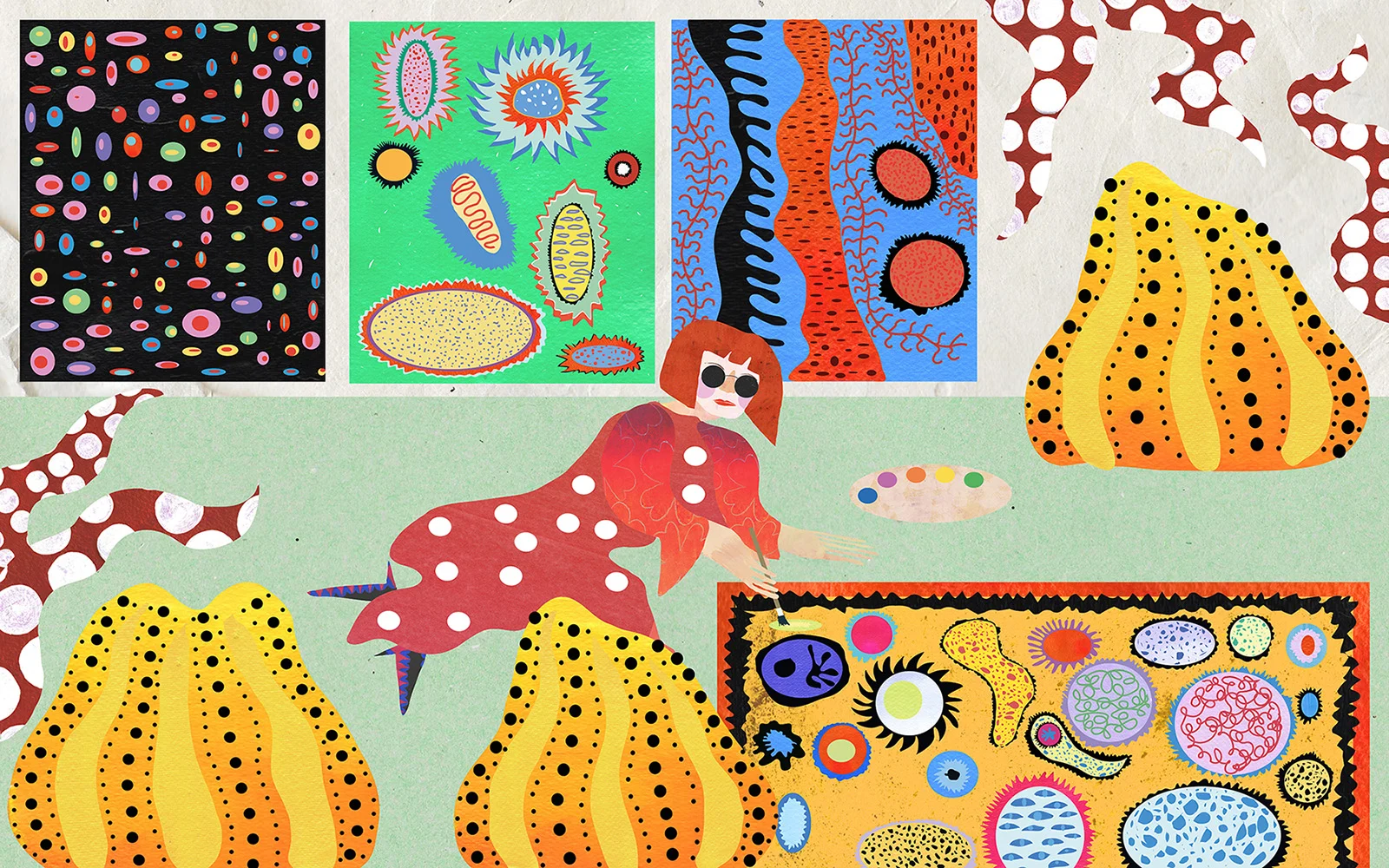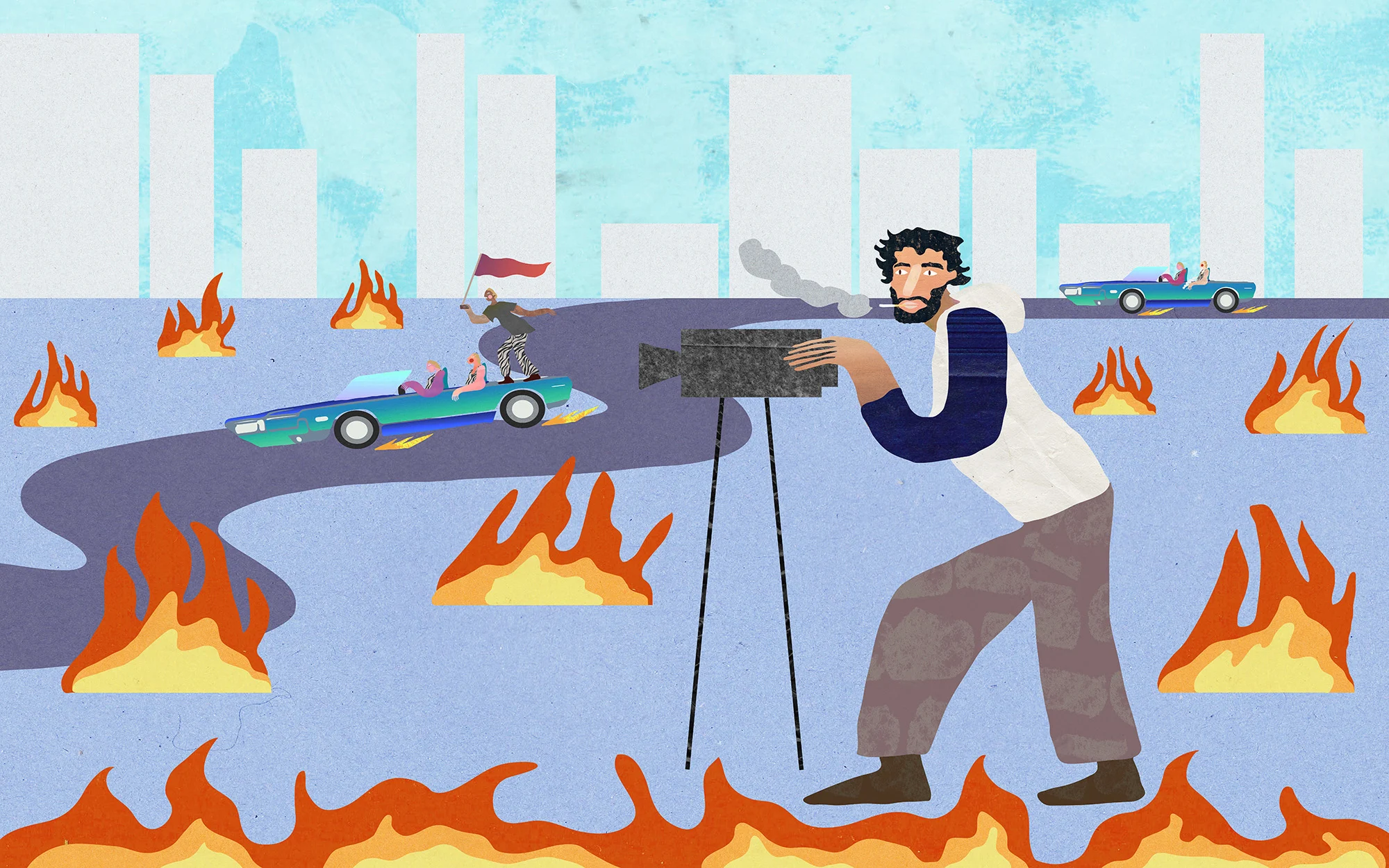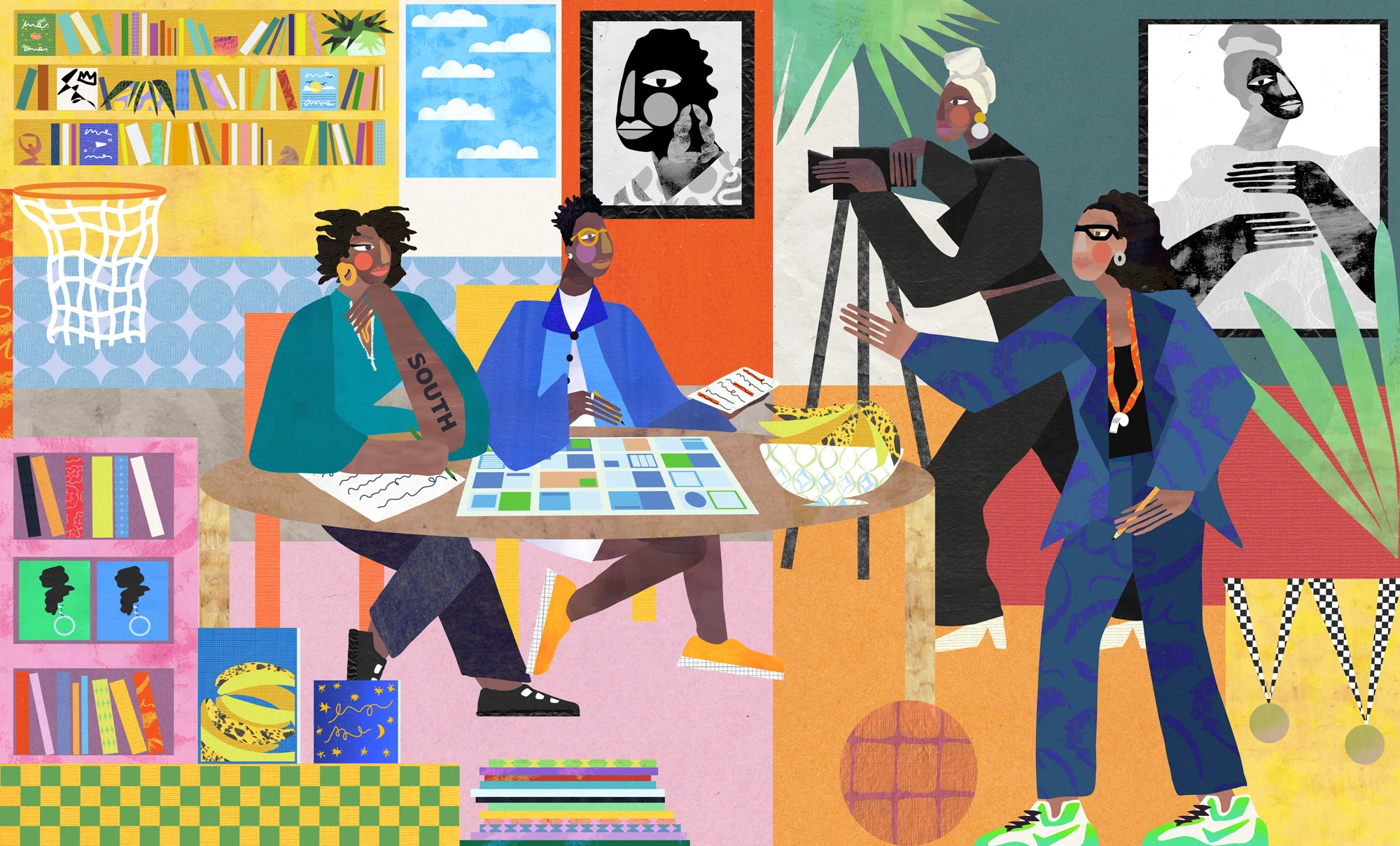

What do studios and employers look for in a great creative team and inspiring collaborators? In partnership with Creative Lives in Progress, we’re launching Team Building; a series setting out to investigate just that. We’ve called upon some shining industry figures to share their ultimate creative collaborators – and what makes each of them so desirable. First up, we pass dream-hire duties onto Kesang Ball, co-founder and creative director of travel platform Trippin.
Illustrations by Imo Crossland.

Having launched her first startup straight out of university, Kesang Ball is no stranger to building creative teams from scratch. As one of three co-founders of new-generation travel platform Trippin, she has helped evolve the company to a full-time team of seven since its inception in 2017 – now spanning specialists in production, strategy, social media management, design and content writing.
The company was born out of a frustration with a somewhat generic travel industry landscape. Visions of pastel-toned sunsets and perfect, backpack-laden families just didn’t capture what Kesang and fellow co-founders Sam Blenkinsopp and Yasmin Shahmir were looking for in travel recommendations. Trippin has since become a go-to for a whole new wave of more discerning travellers, offering a cutting-edge, insider alternative to your average travel magazine. This is in no small part thanks to its slick graphics, striking visuals and well-curated guides, all overseen by Kesang in her role as creative director.
You get something really beautiful from a meeting of minds and identities.
So what is Kesang looking for in a great creative team? “You get something really beautiful from a meeting of minds and identities,” she explains. “It’s really important to have a diverse representation of people who can add to creative ideation, while really considering and representing all people.” Achieving a broad mix doesn’t end at taking into account a team’s backgrounds, experiences and skill sets, but also their lens on the world. “This keeps us pushing our creative in a direction that represents the community,” she shares.
With this in mind, Kesang has whittled down a long-list of dream collaborators to land on a trio of iconic figures who possess the characteristics she looks for in order to make a brilliant team.
Meet Kesang’s fantasy teammates…

Yayoi Kusama
“I love Yayoi Kusama’s work, in terms of what it represents and the ways she explores her struggle with mental health,” Kesang says. “We need artists whose work is truly unfiltered. I think that’s super-important in the world we’re living in.”
Bold, immersive and instantly identifiable, a huge number of Yayoi’s works have become leading icons in the art world – from her polka-dot worlds to glittering infinity-mirror rooms. But it’s the meaning and emotion that runs through her work that leaves the biggest impression, and for Kesang, this is what “cuts through a sea of beige alternatives.”
Central to Kesang’s work as a creative director is to ensure everything the team produces stays true to Trippin’s mission of “challenging the status quo and shattering social constructs around certain topics.” This makes the Japanese contemporary artist an exciting first choice as a collaborator.
How can you be more like Yayoi Kusama?
Be confident in your own style and story
If there’s anything Yayoi’s work isn’t, it’s shy or generic; “She has a very distinct style and identity,” says Kesang. By filling her artwork with references to her own experiences and unique perspective, she has continually stood out from the crowd. As Kesang puts it, bringing your worldview and “lens” to creative collaboration is hugely important – so be confident in what makes you different.
Demonstrate your ability to deliver
While Yayoi’s concepts and process are integral to her work, it’s the final, physical execution of her pieces that packages these elements into something the world can access, explore and relate to.
When asked which role Yayoi might fill on Kesang’s fantasy team, she lands on a mix of graphic designer and art director. She puts this down to both Yayoi’s vision and the proof that she can deliver to a high standard. “You need to know what you’re going to get ,” she says. “I’ll be looking at their portfolio to see if they’ve got work that aligns, or can easily translate to the creative direction .”
Bringing your worldview and “lens” to creative collaboration is hugely important – so be confident in what makes you different.

Anthony Bourdain
There’s a fine line to tread when portraying destinations and cultures that aren’t your own, and this is something Kesang and her team consider on a daily basis. It is, however, a balance she feels the late American chef and journalist Anthony Bourdain struck successfully in his travel documentaries.
“I absolutely adore his narrative style, interview process and the way he allowed himself to assimilate into new environments,” she shares. “He respected different cultures, and the journey of every series and episode is unique.”
Like many of his contemporaries in the travel sector, Anthony occupied a space that is often dominated by white, older men – a reality Kesang perceives as being “a bit colonial.” And yet, he was able to push away from this, managing to convey the essence of a place in a non-voyeuristic way. “Anthony managed to really reflect the energy and pace of a city, and create something culturally relevant and timeless.”
How can you be more like Anthony Bourdain?
Prioritise authenticity and respectful representation
When it comes to producing travel content, Kesang emphasises how critical it is to consider authenticity and authorship, including asking whose voices are being heard. “We partner with our local community on the ground in any destination we’re speaking about,” she says. “You have to embody that level of understanding and representation, and then push to make work in the most creative way possible.”
Do your research!
In order to access and document other cultures well, thorough research, open communication and sensitivity are key. These are attributes Kesang looks for in creative producers, for example, and is keen to see that creatives are able to create genuine connections with a broad mix of people, assess when to pass over the mic, and judge the quality of the creative throughout the whole process.
We partner with our local community on the ground in any destination we’re speaking about.

Romain Gavras
French-Greek filmmaker Romain Gavras has earned huge renown for his epic and transportive music videos for the likes of MIA, Kanye West and Jay Z. For Kesang, Romain’s evocative, beautifully shot work embodies “complete storytelling through music,” and would make him a perfect fantasy collaborator on a film series, or long-form video content.
Kesang cites his multi-award-winning video for Jamie XX’s Gosh as a major source of inspiration, displaying a dedication to detail that can only be achieved by someone who’s been incredibly considered in their vision and decision making. This is something that makes Romain such a covetable creative. “Everything is so saturated right now, so it’s super-important to make sure that what we do at Trippin is the right thing, and that it's done differently where possible,” Kesang states. “It’s so important for us not to fit in , or become comparable to other travel sites.”
How can you be more like Romain Gavras?
Do the unexpected
As Kesang notes, the world is dripping with content right now, so her advice to anyone wanting to catch a collaborator or employer’s attention? “Innovate!” Create work that goes against the grain and takes the unexpected route to really shine through. This might be in the detail, format or story you want to tell. Whatever you do, just avoid emulating familiar styles and regurgitating the same old trends.
Be considered in your choices
In Kesang’s mind, a visionary creative like Romain is just as strict at saying “no” to things, as giving an affirmative “yes” to what excites him. This means being conscious and considered in your stylistic choices, or even the projects you choose to take on. The overall effect will be a body of work that truly represents you.
While Kesang’s lineup will remain a fantasy, we love the idea of these four visionaries joining forces. Her appointed trio reminds us of the importance of carving out your own style, keeping your message and subject at the centre of everything you produce, and the incredible value of uniting a broad mix of worldviews.
Innovate! Create work that goes against the grain and takes the unexpected route to really shine through.




